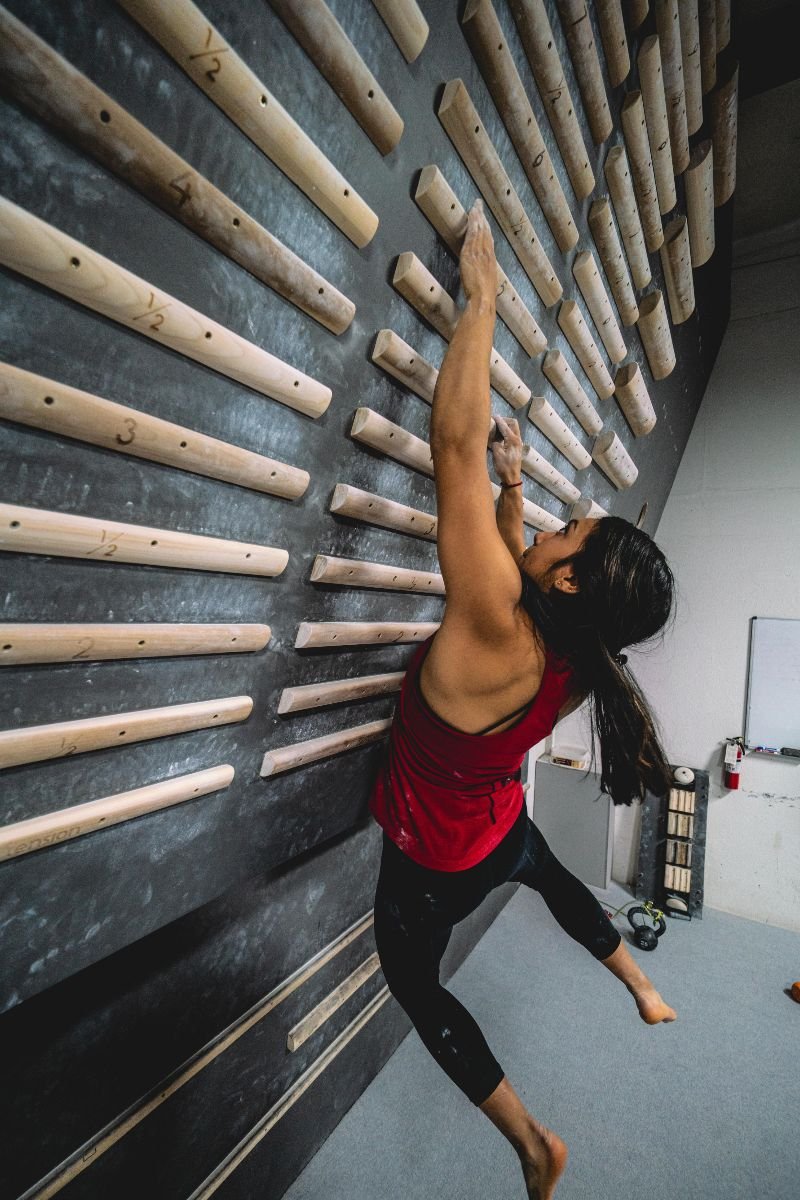the science of climbing training
If you're reading this blog, you're probably interested in and/or experienced with training to improve your climbing.
But it's hard to know exactly how to best do that, especially with how young our sport is. We often look to professionals, coaches, forums, blog posts, social media, and good ol' google for information.
Many of these sources boast being backed by science, science-based, etc. etc. But what does that actually mean?
(Throwback photo pulled from college chemistry lab 😂 )
You may remember learning about the Scientific Method in class growing up. It's the process by which ideas can be tested and conclusions drawn.
As it relates to climbing, an example of the scientific method may be (note: this is purely made up!):
Question: what's the best way to train upper body power?
Background research: look at training protocols for power sports, look at training protocols for other upper body-dominant sports, survey what has anecdotally worked or not worked for climbers in the past, etc.
Construct hypothesis: a heavy strength lifting protocol will result in bigger power gains than a bodyweight campus protocol because power is the expression of strength over time and greater strength will yield more power
Test hypothesis: set up an experiment to test multiple strength/power training protocols while controlling for as many external factors as possible
Analyze data: take results from experiment, observe trends, and see if there is statistically significant difference between the two groups
Draw Conclusion: the data suggests that x is the best way to train upper body power
Report results: this allows others to try and repeat the experiment to see if the results are replicable
Evidence is an important piece of the puzzle because it's the difference between postulation, which may be "science-based", and proof, which is evidence-based.
However, there are drawbacks to the scientific method in climbing as a young sport.
For one, experiments take time and money to perform - resources that our sport doesn't necessarily have readily available.
Another is that results need to be repeated. Just because it worked one time for one group of climbers, doesn't mean it will work all the time. Nor does it mean that it will work for every individual.
So what should YOU do in the meantime?
For now if you are creating your own training programs, do your best to get information from evidence-based resources.
Postulations are exciting and new. They most appropriate to try if you've plateaued on an evidence-based protocol. Changing things up from time to time can be helpful.
What's ultimately important is to find what works for you and your body specifically.
And remember: you have to stick with one protocol long enough for it to actually work.
Consistency is key for results. I generally recommend sticking with a program for around 8 weeks before completely writing it off.
Are there protocols you've tried that you were surprised did or didn't work? Let me know by replying to this email!




